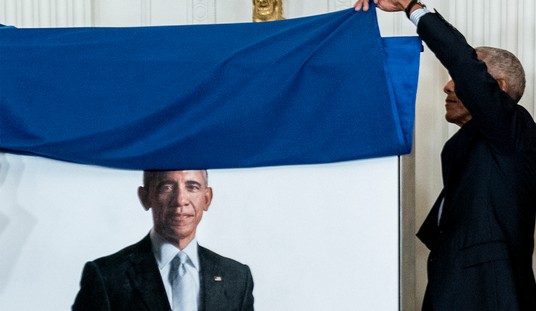 You’re seeing these sad people everywhere these days, especially in large East-and West-Coast urban areas and on college campuses. At parties they alternate between a melancholy, far-away wistfulness and a muttering “why me?”-belligerence. They’re touchy and quick to blame others, and they seem to suffer from night sweats and vague feelings of persecution. Their symptoms worsened suddenly a few days ago when it was announced that Paul Ryan would be joining the Romney ticket as candidate for vice president.
You’re seeing these sad people everywhere these days, especially in large East-and West-Coast urban areas and on college campuses. At parties they alternate between a melancholy, far-away wistfulness and a muttering “why me?”-belligerence. They’re touchy and quick to blame others, and they seem to suffer from night sweats and vague feelings of persecution. Their symptoms worsened suddenly a few days ago when it was announced that Paul Ryan would be joining the Romney ticket as candidate for vice president.
These people are not conservatives. It’s not clear that they’re liberals, exactly, either, though in recent history they have, as it were, caucused with liberals, that is to say, with people who identify themselves as liberals (never mind how illiberal their policies and sentiments happen to be). Above all, however, they are part of the tout le monde: the people who think of themselves as being on the right side of history (corollary belief: they think history has sides and a direction). They go to the right cocktail parties. They have “advanced” (i.e., establishment) attitudes about art, culture, and morals. They are part of that group Harold Rosenberg memorably denominated “the herd of independent minds.”
Tom Wolfe exposed an extreme version of this cohort in his essay on the Black Panthers hosted by Leonard Bernstein in his elegant New York apartment. Wolfe contributed the term “radical chic” to the language to describe the Bernsteins and their wide-eyed guests. What we’re dealing with here is not quite radical (though Obama may in fact be plenty radical himself, the semi-beautiful people who support him are not), nor is it wholly chic. It is a sort of “consensus chic,” though I appreciate the aroma of contradiction the phrase communicates, since that which is genuinely chic exists self-consciously apart from the consensus of hoi polloi.
First time around, these people voted for Obama, giving themselves a little frisson of self-satisfaction when they pulled the lever and, even more, when the emitted condescension about anyone who happened to vote for John McCain — they didn’t encounter such people often, but it always gave them a little thrill of self-satisfaction when they did. It wasn’t long, however, before doubts began to accumulate. The seas didn’t subside, as promised, nor did the unemployment figures. By now, they’re thoroughly depressed. Their man has clearly let them down, and the inadvertent comedy of Joe Biden screaming that Republicans are going to “put y’all back in chains” isn’t helping. Even worse is the news that team R&R, the Romney-Ryan express, is surging among young voters.
It wasn’t supposed to turn out this way. The good “Liberals” (i.e., the illiberal liberals) who voted for Obama the first time around, the mostly white, privileged products of elite schools and progressive attitudes, were supposed to be on the winning side of all such controversies. They were the enlightened ones. Republicans, the people who voted for John McCain and — Ohmygod! — Sarah Palin, didn’t go to the right schools; didn’t ingest the proper balance of gluten free, free-range, macrobiotic, whatever; wore the wrong sorts of clothes; had funny hairdos; owned guns; and (often) were God-fearing people who took religion seriously. Such people were less objects of pity than of contempt, though when their politics were not on view they provided vast fodder for interventionist government programs aimed at transforming these unfortunates into consensus-chic, testosterone-free liberals.
The deep problem now is how to help the vast regiments of disillusioned liberals. As I’ve noted in this space before, momentum towards Romney is mounting. Soon, I predict, it will be all but irresistible. And then the consensus-chic liberals who had supported Obama in 2008 will be ideologically homeless. It is up to us to offer them a helping hand: a two-step program of recovery. Self-knowledge is the first step. They must have the courage to stand up before their friends and say, “I’m John Doe, and I supported Barack Obama.” Their friends, most of whom are likely to be in the same position, will applaud and tell their own war stories. About the time they blacked out at an Obama fundraiser, or the time they couldn’t remember who James Madison was. There will be solidarity in numbers.
Once that critical first step is taken, the rest will be easy. Sure, there will be bad days, days when a copy of the New York Times will be open beside them in a taxi, with an article by Paul Krugman staring them in the face, or nights when they find themselves at a party in which some acquaintances have yet to confront their addiction. It will be hard not to join in, to have just one sip of the old intoxicant. But with every day that passes, members of this new support group will gain in confidence. Soon they will be ready to take the important public step of declaring their support for the candidates who want to help America prosper and help Americans help themselves, who are not ashamed to criticize Obama’s dependency agenda as a prescription for national servitude. I’m not saying the process is painless. But the satisfactions of having stood up for oneself are great. More and more people are doing it today. Which means that even more will be doing it tomorrow.
****
Thumbnail and photo courtesy shutterstock / Gts









Join the conversation as a VIP Member